Student Blog
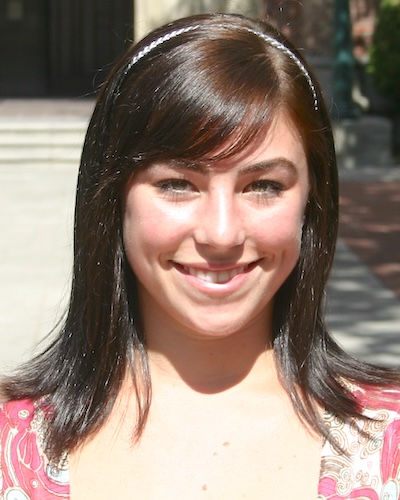
Finding what is meaningful to you ⟩
October 6, 2010, by Austen
Life Hacks School/Life Balance
Occupations are the activities we fill our time with, the things we do daily. In our Occupational Therapy program, we have read a lot about how important occupations are to health and well-being, and why engaging in meaningful activities positively influences our overall quality of life. It seems obvious that doing things we enjoy helps us live healthier happier lives, but I did not really think about it until we discussed it in class. Since then, I have made a conscious effort to incorporate activities I love doing in each and every day. As a result, I am happier and more satisfied with my life.
I danced on my high school’s state champion dance team for four years. We practiced for around 15 hours a week, learning and perfecting our routines to compete. Sometimes I could not stand walking into that gymnasium room any more, I was sick of our music, and annoyed with our coach yelling at us. But when I was dancing in front of hundreds of people hearing fans cheer me on, I remembered why I love dancing. My muscles would take over and they knew exactly what to do, my mind would go blank, and time seemed to fly by. I reached what we call “flow.” But when I went to college, I stopped dancing. I started freshman year as pre-med, and had no time for it. I lost one of my most meaningful occupations. Looking back, I can see how negatively it affected me. I was low on energy, not as happy, and felt like something big was missing from my life. It is almost as if I did not realize how important and influential dancing was to me until I lost it. It was not until years later, during the first year in the OT program, that I was inspired to pick it back up again.
I joined the USC Repertory Dance Company through the School of Theater on main campus at USC. Having dance back in my life has made a huge difference in my wellbeing over the past year. I have a social network of friends in my company, I get lots of exercise, and I have a creative outlet for expression. It is a wonderful right-brain activity to balance out all the left-brain work we do in school. It is a chance to get lost in music, explore new movement, and step into the character of whoever I want to be. I can leave my problems, concerns, and anxieties at the door and forget about them during rehearsals. Picking up dance again helped me experience for myself what it is we have been learning in OT school. I now understand the role meaningful occupation plays in one’s life. Experiencing the negative effect of not dancing solidified the importance of pursuing things I enjoy doing as often as possible. I am going to continue to engage in meaningful activities such as dance because they truly make me a happier, healthier, more motivated and curious person.
What do you enjoy doing? What makes time fly by for you? What do you look forward to doing everyday? If those question bring specific things to mind, hold on the them and continue engaging in those activities. If nothing comes to mind, go out and find something that makes you happy and excited. This will make each day fulfilling and help you achieve overall wellbeing.
⋯
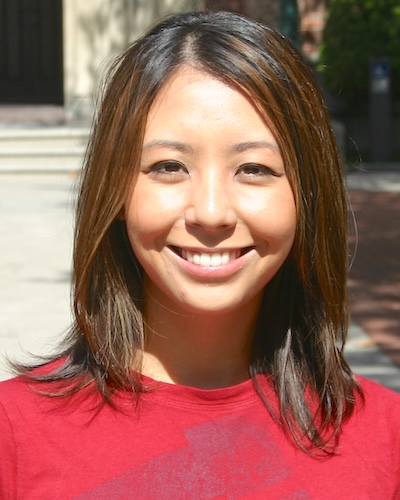
Practicing Occupation at a Senior Facility ⟩
October 5, 2010, by Carissa
Occupation as a treatment modality.
During this past summer fieldwork at a senior facility, I found importance of putting into practice what all of our teachers have drilled into us — using meaningful activity not only as an ends for our treatment but as a means to get there. While this idea is easier to understand with kids, as play is meaningful to most children, it definitely takes a second or third thought when dealing with older adults. What is the individual’s goal? What motivates one person doesn’t necessarily motivate someone else. After using an interest checklist to see what mattered to my clients, I found that many of them loved to dance. Without a second thought, with the assistance of my clinical instructor, we set up an occupational therapy dance group. We tried to incorporated everyone who found dancing to be meaningful, including those who had experienced strokes, those with constant pain, those in wheelchairs, those with arthritis, those with Alzheimer’s, and those who just wanted to lose weight. The dance sessions consisted of mainly merengue and cumbia, with everyone voting for these latin beats. There was also opportunity for patients to bring in some of their own music and/or instruments. We found regulars in a group of people who did not regularly attend OT, people who attended mainly for a hot pack, or people with a tendency to be unmotivated for therapy. After about 5 weeks, with sessions 2x/week for 30 minutes, people were reporting decreased pain and losing weight (about 5 pounds!). Using occupation sets up for success. Not only did the clients enjoy themselves and benefit from treatment, but it was also therapeutic for me. I loved it! This made for an exciting summer far different from the typical 9-5 desk job.
⋯
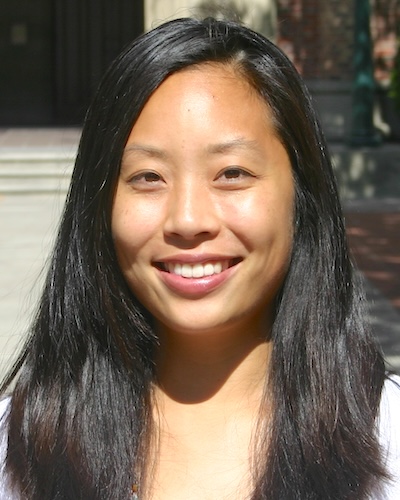
Why Occupational Therapy? ⟩
September 30, 2010, by Yao
I actually started off wanting to be a lawyer, then a forensic scientist, then a physical therapist and finally after all that I was introduced occupational therapy and found my passion. My mother introduced the profession to me because she was aware at the time that I wasn’t sure about my career decision. She noticed that the occupational therapists at her facility were always fun to be around and thought it would be a good idea for me to shadow them for a day. If anything I could at least have a day of my summer entertained by hilarious people who happened to be occupational therapists. During my observation it didn’t seem like therapy at all the whole time the residents were talking about what they were doing when they were my age all the while working on everyday activities like dressing. Everyone was always laughing and every single resident that day told me that they loved coming to occupational therapy because they felt as if they were hanging out with friends and happened to be working on their skills while visiting. Later that day I asked one of the head occupational therapists there what they liked most about being an occupational therapist and he mentioned that he loved occupational therapy because at the end of the day its all about the person. The treatment is based on the resident and when all is said and done it’s a profession that empowers the patients/residents with skills and encouragement that allow them to be the master of their own treatment. At that moment it all came together because the idea of empowering people to help themselves had been a theme throughout my life and one of the lenses I use in my interpretation of the world and interaction with people. That’s why I chose occupational therapy and ever since I’ve never considered another profession other than occupational therapy.
⋯
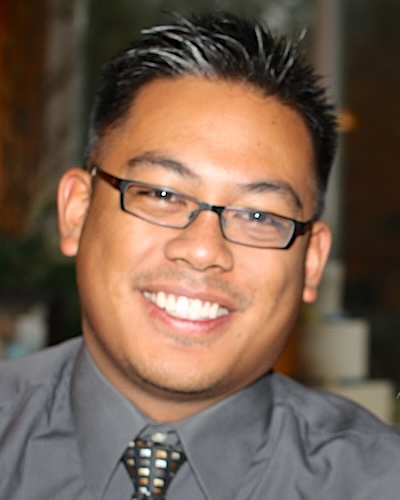
Why Occupational Therapy? ⟩
September 30, 2010, by Pierre
My interest since high school was to help people through rehabilitation. My interests matured from athletic trainer, to psychologist, to physical therapist, and finally to occupational therapist. As you can see I transitioned between body and mind disciplines throughout my educational career, and after much questioning, deliberation, and encouragement, I chose to enter into the field of occupational therapy. My second interest was in the area of pediatrics. Currently, I am doing part-time fieldwork at a unified school district for school-based therapy, and am enjoying it.
As I begin my 2nd year, I realized that I have made the right decision. Let me share why I enjoy learning about occupational therapy and why it was an attractive profession. Occupational therapy is a field that combines the mind and body to allow us to focus not on one part, but on both — the whole person. In a world that is progressing in technology, treatment within occupational therapy may seem simplistic or low tech. Occupations and activities that people do are simplistic in nature because we create daily habits. Dressing up, reading a book, holding a conversation with a friend, riding a bike or driving to work are some things that many individuals carry out automatically without considering its complex or simplistic nature. As occupational therapists we connect with our clients in order to discover what challenges may be in their life currently and what they want to achieve. The challenge lies in how we can help our clients relearn, recover, adapt or create their old or new occupations in their life.
I believe in occupational therapy for its creative practicality. Sometimes we say that a person can, “Make that [action] appear effortless and easy.” Occupational therapy “looks” effortless and easy, but in reality it is continually assessing dynamic changes within the client, gains within treatment, planning future goals, constant adaptation of the environment, etc.
Occupational therapy is about living today in the best way possible.
The only way to do that is to engage in life . . .
Engage in meaningful occupations . . .
Engage to experience your environment . . .
Engage to attain satisfaction . . .
Engage to improve your health.
There’s no better place to study about occupational therapy than here at USC. I chose this institution because of the long history it has had in occupational therapy. It has been the top program in the nation for nearly a decade and has produced many clinical practitioners and occupational scientists that are (and have been) at the forefront of their practice and their research. I chose occupational therapy because I want to be involved alongside the client throughout their process of rehabilitation. I want to be able to provide the opportunities to “get back to living.”
Fight on USC OT!
⋯
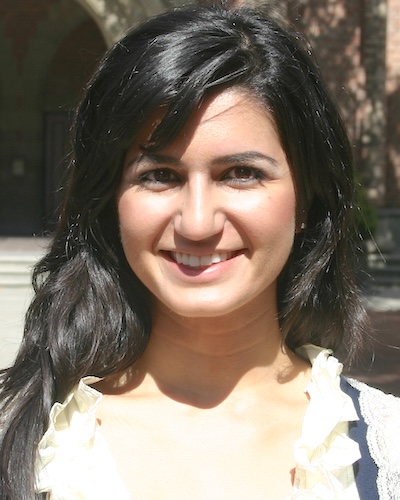
Why did you choose to study OT? ⟩
September 30, 2010, by Helen
Getting Involved What are OS/OT?
Everyone asks, “What made you choose Occupational Therapy?”
Throughout my academic career, I always knew I wanted to work in a helping, health profession. In high school, I did room visits at the local rehabilitation hospital listening to patients, asking about their day, and opening myself up to the patients’ histories, family circumstances, and their concerns for the future. I organized a group called the Musical Bridge to bring a source of music and energy to those rehabilitating. For six years, I organized monthly recitals in the rehabilitation hospital. By adding a source of entertainment to the daily lives of the patients, I felt that I could, in an acute sense, promote their emotional and mental health.
Later in high school, I watched my grandfather slowly lose all independence to his dementia. While watching the persistence of my grandfather’s character despite experiencing such a devastating neurological disorder, I realized the value of resiliency. As a fourteen year old, I knew that I wanted to dedicate my professional future to the field of rehabilitation in some way. I am fascinated by people, their perspectives, and how no two individuals internalize and experience the same circumstance identically. My passion is studying developmental processes and the genetic, social, and socioeconomic factors that intertwine to influence one’s process of growth and attaining independence. Everything I have done up to now has been part of my efforts to help individuals rehabilitate and retain independence in their daily lives.
During my undergraduate studies, I took it upon myself to volunteer at as many rehabilitation settings as possible to determine where my strengths would best be utilized. I volunteered at pediatric clinics, geriatric gyms, rehabilitation hospitals, at an adult day health center, in addition to shadowing therapists in the school district. Through volunteering at these different sites, I realized that Occupational Therapy was a field that truly intertwined everything I loved about the rehabilitation process. Occupational Therapists were able to take the time in learning the client’s past, understanding how their condition affects the present, and set goals that would maximize function for the future. By utilizing the client’s interests to drive therapy, the Occupational Therapists I observed were able to provide motivation when patients were at their weakest points.
My most influential internship was at an adult day center working closely with clients who had been affected by various unpredictable circumstances. There is one gentleman, whom I will call John, who tremendously influenced my drive to pursue Occupational Therapy as a profession. His short term memory and motor skills have been significantly impaired due to anoxia after Cardiac Arrest. I worked with him on the piano, actively watching his progression from not recognizing notes to once again being able to sight-read very simple sheet music. While John may not have recognized me when he saw me every week, and despite him staring at me blankly as I made eye contact with him and asked him if he would “like to play piano today,” he would excitedly follow my lead into the therapy room. As I adjusted his chair, making sure that he could comfortably reach the keys, he sat patiently waiting to be presented with sheet music to play. As our piano session would end and I walked John back to his familiar seat, at his familiar table, I would say “It was nice playing piano with you today” and he would nod his head yes. After ten months of playing the piano with the therapist and me on a weekly basis, John was able to retain significant amounts of motor control, develop his postural balance, his distal control, and increase his visual motor skills. All these developments were possible because the therapist had best understood John’s therapeutic currency — his occupation.
It is an understatement to argue the power of a positive mentality and the outcome of hard work. Every patient I have seen has influenced my own perspective and the way I approach personal issues in my life. Through USC, I have had opportunities working in pediatric occupational therapy, acute inpatient occupational therapy, in the school districts, as well as an international fieldwork experience in Ghana. Additionally, I have been exposed to the value of professional advocacy and health care politics. By having a strong sense of the theory behind practice, intertwined with hands on experience, I become increasingly passionate about the field of Occupational Therapy the more I learn. I do not hope to merely attain a graduate degree, but rather lead an energetic practice and continue personal research in the fields of development and rehabilitation. Occupational Therapy allows me to take a holistic view of each client to assess every client’s strengths and limitations and develop a plan of care which addresses their goals and maximizes function. I have gained that this trust and respect of the client as a person provides the foundation of therapy. Being a vital component of an individual’s process of rehabilitation energizes my pursuit of Occupational Therapy. Whether it is my grandfather or John, as a future Occupational Therapist, I hope to always project the same humility and motivation that I have learned from the clients I have worked with.
⋯





